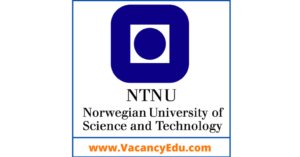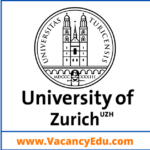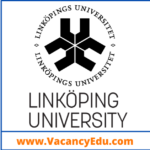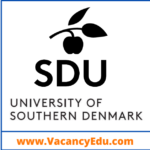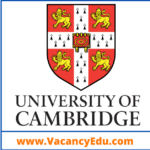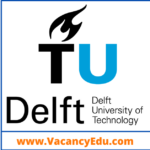NTNU, Norway invites online Application for various Postdoctoral Fellowship in their different Departments. We are providing a list of Postdoc Fellowship positions available at NTNU, Norway.
Eligible candidate may Apply as soon as possible.
(01) Postdoctoral Fellowship Position
Postdoc Fellowship Position summary/title: Postdoctoral fellow in sociology in the field of algorithms and AI in working life
We have a vacancy as a postdoctoral fellow in sociology for a period of 3 years. The postdoctoral position is a qualification position where the main aim is to qualify for work in top scientific positions. The position is assigned 1 year with work obligations in the form of teaching and guidance tasks. These will be linked to sociology teaching as well as further and further education and the Master’s program in Organisation, digitalisation, administration and work (MODAA).
As a postdoctoral fellow, you get to develop and carry out your own research project, and work with scientific publishing. Arrangements have been made for, and expected, extensive participation in the research group “Technology and social change” in which the position is anchored. The group will support and guide the project implementation and provide a foundation for the project. The group is broadly oriented towards studies of technology in working life and society in general.
The topic of the Post Doc project is algorithms and AI in working life. More specifically, an investigation of algorithmic management of work (of platform work and preferably in other industries) and/or the use of algorithms/AI in employment processes is desired. These are fields where new technology is expected to have great significance for the sociology of work, and where contributions can also be developed to, among other things, sociologically oriented ICT research, technology and science studies, and organizational research. With the emergence of new technology, the traditional power relationship in working life can be challenged. This is particularly relevant since the Norwegian model is characterized by local democracy, a high degree of organization and cooperation between employer and employee organisations. The focus on algorithms and artificial intelligence in working life therefore has great transfer value to general discussions about the role of technology in future working life, democracy and the development of the Norwegian labor market.
Deadline : 16 September 2024
(02) Postdoctoral Fellowship Position
Postdoc summary/title: Postdoctoral fellow in social work
At the Department of Social Work at NTNU, there is a vacant temporary position as a postdoctoral fellow in social work for a period of 3 years. The postdoctoral position is a qualification position where the main aim is to qualify for work in top scientific positions.
The purpose of this postdoctoral project is to explore, both theoretically and empirically, “resistance” as a phenomenon in child welfare. High demands are placed on cooperation and participation in child protection, with children and parents. At the same time, both children and parents can often express a broad and creative repertoire of resistance in the meeting with child welfare services. Understanding the role that various actors’ resistance plays in the cooperation between families and child welfare services/other welfare services could have a major impact on whether vulnerable families receive effective help.
The position is associated with the research group ” Child protection research and innovation “. The post.doc position will also be linked to the established collaboration between the research group and Trondheim municipality through the “University Municipality TRD 3.0”.
Deadline : 26 August 2024
Looking for more Postdoctoral Positions Click Here
(03) Postdoctoral Fellowship Position
Postdoc Fellowship Position summary/title: Postdoctoral fellow in sociology
We have a vacancy as a postdoctoral fellow in sociology for a period of 3 years. The postdoctoral position is a qualification position where the main aim is to qualify for work in top scientific positions. The position is assigned 1 year with compulsory work in the form of teaching and guidance tasks in sociology.
As a postdoctoral fellow, you get to develop and carry out your own research project, and work with scientific publishing. In the position, you get to work independently on your own project, but with good opportunities for collaboration, follow-up and guidance through participation in the responsible group Migration and mobility https://www.ntnu.no/iss/migrasjon-og-mobilitet in which the position is anchored Here, experienced and younger researchers meet in a safe community that emphasizes supporting and developing the individual’s project. The research group arranges both internal and international seminars, and through the research group you get access to and the opportunity to make contacts that are important for your research project and further development.
The research in the group is linked to various forms of mobility and migration at different levels of society, such as domestic and international migration, inequality and welfare, and change processes in local communities. The post doc position springs from this and will be a closer study of how local society and working life organization promote or discourage integration and inequality among migrant groups.
Deadline : 15 August 2024
(04) Postdoctoral Fellowship Position
Postdoc Fellowship Position summary/title: Postdoc Position in Mathematics Education with a Focus on Critical Mathematics Education at NTNU
Critical mathematics education (CME) points out the importance of seeing the goal of mathematics education in terms of preparing learners as critical/responsible citizens with power, authority, and knowledge to engage with mathematics productively and critically. Here the role of taking a critical stance into the mathematically formatted realities can be aligned with responsible citizenship through mathematics. With this goal of responsible citizenship in mind, we want to explore through this post-doc fellowship how to take a critical stance on various issues related to climate change and its mitigation measures through education for sustainable development (ESD). Here ESD can be approached through dialogical engagement with critical interpretations of arguments around climate change in mathematics classrooms at schools. What kinds of support can mathematics teachers provide to encourage learners to take a critical stance on the mathematics involved in climate change? Moreover, the postdoc position will help by strengthening our Sustainability Lab for school initiative through innovative transdisciplinary approaches to engage with sustainability from a socio-ecological perspective within school and teacher education contexts.
Deadline : 12th August 2024
(05) Postdoctoral Fellowship Position
Postdoc Fellowship Position summary/title: Postdoctoral Fellow in Real Estate Economics and Finance
Deadline :5th August 2024
Click here for “Postdoc Application Cover Letter Template”
Click here to know “How to write a Postdoc Job Application or Email”
(06) Postdoctoral Fellowship Position
Postdoc Fellowship Position summary/title: Postdoctoral Fellow in Thermodynamics and Porous Media Science
The postdoctoral fellowship position is a temporary position where the main goal is to qualify for work in senior academic positions.
The period of employment of this position is 3 years. The position will be in the Thermodynamics group at the Department of Chemistry at NTNU, and also part of Porelab, which is a research centre of excellence within Porous media.
PoreLab is a Norwegian Center of Excellence created in 2017 and situated at the Norwegian University of Science and Technology (NTNU) in Trondheim, and the University of Oslo (UiO)
The Center, which is supported by the Research Council of Norway, is an interdisciplinary Center with joint efforts in theory, computer simulations and experiments, in fundamental and applied directions. The center works to advance the understanding of flow in porous media. The main goal of the center is to develop theories, principles, tools and methods to reduce the trial and error approach to porous media with relevance in biology, chemistry, geology and geophysics based on fluid mechanics, non-equilibrium thermodynamics and statistical mechanics.
Deadline : 4th August 2024
(07) Postdoctoral Fellowship Position
Postdoc Fellowship Position summary/title: Postdoctoral Fellow in Geomechanics – IV-80/24
The postdoctoral fellowship position is a temporary position where the main goal is to qualify for work in senior academic positions.
Safe subsurface CO2 storage requires no leakage from the reservoir to the top surface (seafloor or on land) over an indefinitely long time. The required containment has implications for characterization and operation of the storage site, and not least, for the surrounding rock. This is an area where geomechanical evaluation together with seismic characterization and monitoring is crucial for a successful CCS project.
The postdoctoral project is focused towards geomechanical processes associated with injection operations where pore pressure, stresses and temperature change within the storage reservoir as well as in the surroundings. The work will be based on experiments performed in SINTEF’s Formation Physics laboratory, supported by data available from open literature. The work will be performed in collaboration with the PhD on numerical modelling, supervised by Prof. Alexandre Lavrov. The main objective of the work described here will be to contribute to a toolbox for assessing the influence of injection-induced stress, pore pressure and temperature changes on cap rock integrity and within the storage reservoir. Emphasis will be on identification of crucial parameters for assessment of geomechanical and rock physics contributions to 4D seismic monitoring and forecasting of leakages.
Deadline : 30th July 2024
(08) Postdoctoral Fellowship Position
Postdoc Fellowship Position summary/title: Researcher in Critical Infrastructure Security and Resilience
There are a number of cyber test ranges available (including in Europe) but the federated approach and advanced cyber physical test range capability are two elements of the FACT project which makes it disruptive and unique. The focus on Operational Technology (OT) is increasing when it comes to military systems, and the cyber physical aspect is thus of greatest importance for the FACT project. Military platforms are not easily transferable to a relevant location for test. However, the federated approach in the FACT project will allow the physical part to be implemented at more than one location, and still make use of the full capability of the partners capabilities during the testing. To ensure that the equipment is used and has a required level of protection, the FACT project will design, prototype and demonstrate a federated cyber physical test capability which can be maintained and become a sustained capability to the European nations after the project. Our approach is fully user-centric, with the end-user’s needs as the starting point for the whole capability and every consideration. Examples of test scenario setups where the federated aspect of FACT is an advantage are numerous: larger partners wanting to cooperate in larger system deliveries, smaller companies cooperating with several partners within their complimentary field of expertise, sharing vulnerabilities and mitigating actions on equipment across partners and nations for shortening time to market.
Deadline :30th June 2024
Click here to know “How to Write an Effective Cover Letter”
(09) Postdoctoral Fellowship Position
Postdoc Fellowship Position summary/title: Postdoctoral Fellow in Hardware Security and Reverse Engineering in Embedded Systems
Hardware components are crucial for ensuring computing systems’ security, integrity, and reliability, especially in industrial control systems (ICS), as they play a pivotal role in our daily lives and critical infrastructures, transmitting vital information for decision-making processes. To enhance security at the hardware level, it’s essential to understand device vulnerabilities and potential attack vectors. Hardware reverse engineering (HRE) is a method used to gain insights into the inner workings of man-made devices. However, there’s a noticeable gap in educational resources related to hardware security and HRE, including courses, labs, and best practices.
The reverse engineering lab at NTNU Gjovik is being established under NORCICS to address future hardware security challenges by developing innovative methods, tools, and techniques in collaboration with industries, government, and international research institutions. The lab has essential testing equipment for testing hardware security vulnerabilities on embedded systems. In partnership with national/international experts, the HRE lab will be a central hub for various activities. It will establish a physical reversing lab for research, testing, and training, develop a Hardware Security Reverse course for academic and industry use, organise workshop/seminar series on specific topics for partners, and host the annual NTNU Reverse Engineering Forum, providing a vital meeting point for the community.
Deadline :30th June 2024
Connect with Us for Latest Job updates
About NTNU- Norwegian University of Science and Technology, Norway- Official Website
The Norwegian University of Science and Technology is a public research university in Norway with the main campus in Trondheim and smaller campuses in Gjøvik and Ålesund. The largest university in Norway, NTNU has over 8,000 employees and over 40,000 students. NTNU in its current form was established by the King-in-Council in 1996 by the merger of the former University of Trondheim and other university-level institutions, with roots dating back to 1760, and has later also incorporated some former university colleges. NTNU is consistently ranked in the top one percentage among the world’s universities, usually in the 101–500 range depending on ranking.
NTNU has the main national responsibility for education and research in engineering and technology, and is the successor of Norway’s preeminent engineering university, the Norwegian Institute of Technology (NTH), established by Parliament in 1910 as Norway’s national engineering university. In addition to engineering and natural sciences, the university offers higher education in other academic disciplines ranging from medicine, psychology, social sciences, the arts, teacher education, architecture and fine art. NTNU is well known for its close collaboration with industry, and particularly with its R&D partner SINTEF, which provided it with the biggest industrial link among all the technical universities in the world. The university’s academics include three Nobel laureates in medicine, Edvard Moser, May-Britt Moser and John O’Keefe.
Disclaimer: We try to ensure that the information we post on VacancyEdu.com is accurate. However, despite our best efforts, some of the content may contain errors. You can trust us, but please conduct your own checks too.
Related Posts
- Postdoctoral Fellowship (36) at Harvard University, United States

- Postdoctoral Fellowship (03) at EMPA, Zurich, Switzerland

- Postdoctoral Fellowship (14) at University of Zurich, Switzerland

- Postdoctoral Fellowship (04) at Maastricht University, Netherlands

- Postdoctoral Fellowship (09) at Groningen, Netherlands

- Postdoctoral Fellowship (05) at Linkoping University, Sweden

- Postdoctoral Fellowship (17) at University of Southern Denmark, Denmark

- Postdoctoral Fellowship (28) at University of Cambridge, United Kingdom

- Postdoctoral Fellowship (13) at Delft University of Technology (TU Delft), Netherlands


